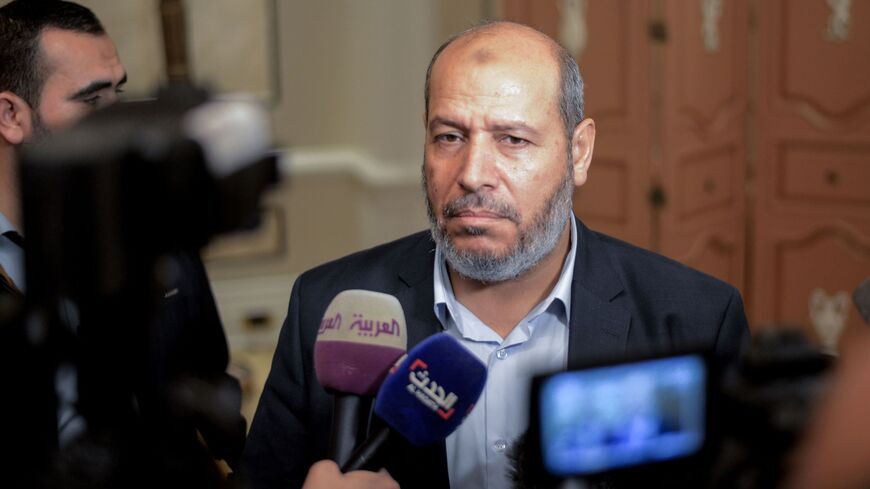GAZA CITY, Gaza Strip — The Palestinian Hamas movement is expected to visit Damascus soon, after announcing the resumption of ties with the Syrian government following a decade-long hiatus.
The Syrian newspaper Al-Watan, which is close to the Syrian government, reported Oct. 10 that a delegation that includes members of the Palestinian factions, including Hamas, will head to the Syrian capital in the coming days.
According to information obtained by Al-Watan, the visit aims at fully restoring ties with the Syrian government. The paper also noted that the Hamas delegation will be made up of representatives of the movement’s resistance wing, not the Muslim Brotherhood wing.
Hamas — which had defined itself as one of the branches of the Muslim Brotherhood before announcing its dissociation from the group in 2017 — had left its offices in Damascus in 2012, after siding with the Syrian opposition against President Bashar al-Assad. At the time, Hamas was headed by Khaled Meshaal.
Two sources from Hamas confirmed to Al-Monitor on condition of anonymity that the Hamas delegation will visit Damascus before the end of October, and will be headed by Khalil al-Hayya, the movement’s head of Arab relations, along with other Hamas leaders from Gaza.
The two sources explained that Hamas’ visit comes as part of the Palestinian factional delegation, but that efforts are underway to hold a separate meeting between the Hamas leaders and Assad. Syrian leadership is expected to set the date for the visit.
The sources also pointed out that Hamas’ delegation is seeking to strengthen its relationship with the Syrian government following the movement's statement on Sept. 15, in which Hamas praised Syria's role and positions on the Palestinian cause and its support for the Palestinian resistance.
The recent rapprochement provoked division inside and outside Hamas. Some saw it as a necessary step in light of the movement's fading popularity in Arab and Islamic countries, and its waning financial and military support. Others labeled it as a historic sin.
Ayman al-Rafati, a political analyst and researcher at the Center for Regional Studies in the Gaza Strip, told Al-Monitor, “Hamas wants to consolidate its relations with the resistance axis, which includes Hezbollah and Iran. It also wants a foothold in a country that allows it to operate politically and militarily with some kind of ease.”
Meanwhile, the Syrian government seems to be accepting Hamas' overtures amid pressure from Iran and Hezbollah. The renewed ties could bring back the Syrian government as a major player in the Palestinian cause.
However, Adel Samara, a political analyst and writer for several local papers, argued that relations between the two sides will remain cautious for a long time. The departure of Hamas’ leadership from Syria at the beginning of the war and the alignment of some of its leaders with the opposition was "an unforgivable betrayal” in the eyes of the Syrian leadership, he told Al-Monitor.
Samara agrees with Rafati that the Syrian government also has gains to reap from a rapprochement. “The regime wants to remain seen as a strong supporter of the Palestinian military factions, not to mention its desire to reassume a central role in the Palestinian cause,” he said.
In any case, Hamas and the Syrian government will need a long time to gain each other's trust again. The Syrian government is currently still refusing to open an office for Hamas in Damascus.







